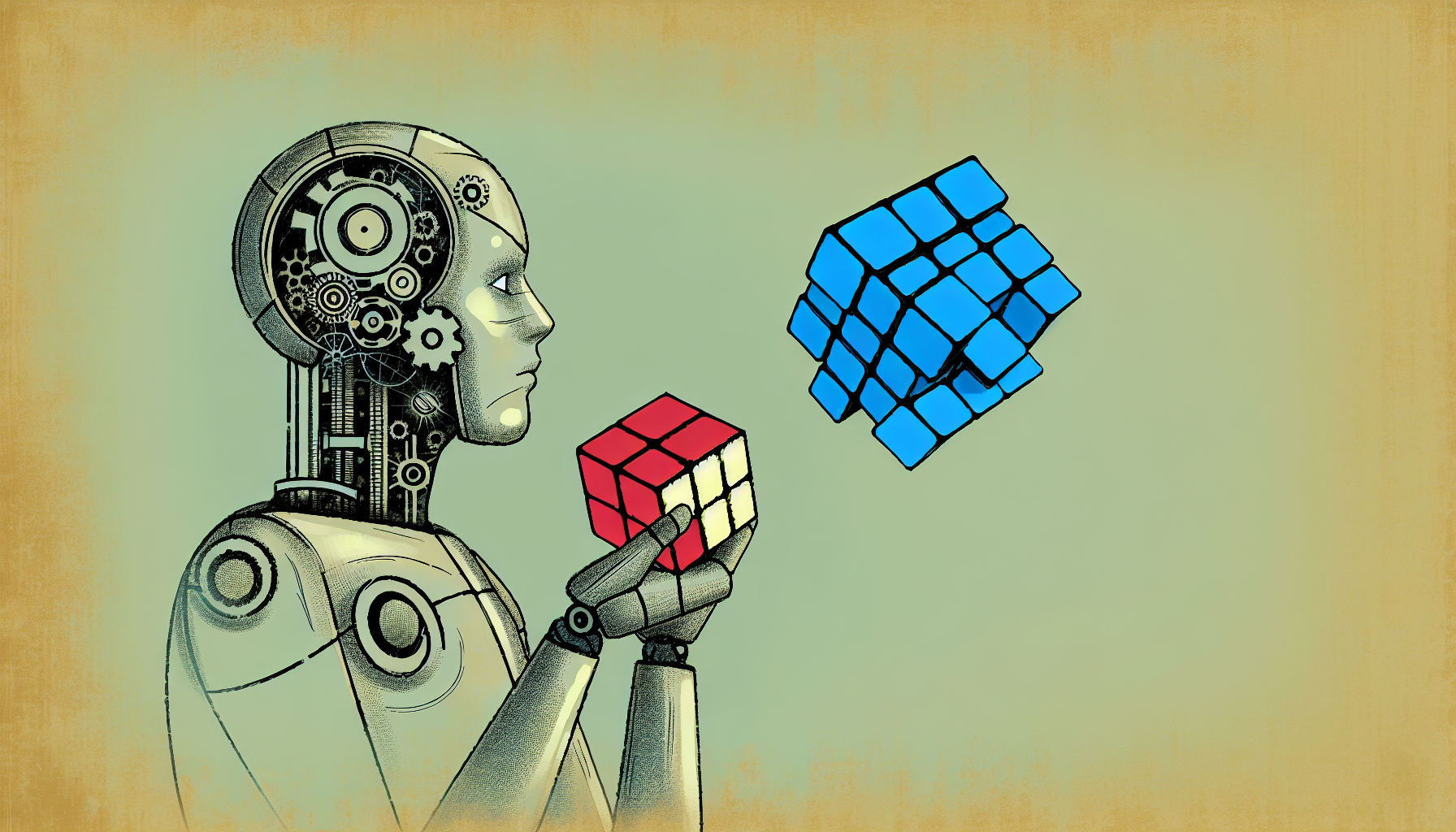It’s not every day that you stroll through a philosophical inquiry with the delightful companions of algorithms and biases in tow. Yet, here we are, embarking on a journey to unravel the quite peculiar yet deeply consequential existence of societal bias in artificial intelligence. Grab a cup of your favorite existential beverage, and let’s navigate this terrain where machine learning meets the age-old quandaries of ethics.
The Unseen Puppet Masters
Imagine, if you will, an invisible puppeteer. This entity isn’t human; it’s lines of code. Though they lack a physical form, these algorithms are the unseen forces shaping decisions and recommendations, from hiring processes to what’s trending on social media. But here’s the kicker: these puppet masters often reflect the imperfections of their human creators. When societal biases, those pesky preconceptions lingering within our social structures, sneak into the code, they become immortalized in the binary dance of ones and zeroes.
Machine learning models are remarkably clever at pattern recognition. They gobble up data by the terabyte, learning all that can be gleaned from what is available. However, they also inherit historical biases embedded in that data. If society has been less than fair, these biases are reflected and perpetuated in the decisions the algorithms make. It’s like inheriting your grandfather’s vintage sweater, except it comes with old-fashioned prejudices stitched right into it—patriarchal and moth-eaten, but all yours.
From Bias to Ethical Debacles
Our concern turns ethical when we imagine these biases not just existing but amplifying. Consider this: if an AI system consistently scores certain candidates lower on job suitability due to biased historical hiring data, it doesn’t just reflect a biased past; it shapes a biased future. What we are staring at is a feedback loop where societal inequities are not just preserved, but also propagated. Now, that certainly puts a damper on the whole “creating a brighter tomorrow” business.
The ethical dilemmas multiply when we introduce the notion of accountability. When a decision goes awry due to bias, who do we point our fingers at? Is it the data custodians, the algorithm designers, or the AI system itself? The complexity increases as we take into account the autonomous nature of these systems – a philosophical paradox where the creator and the creation are both culpable, yet neither fully responsible.
Bias: An Uninvited Guest in the AI Party
Bias in AI isn’t there because someone maliciously invited it to the party. It slipped in unnoticed, tucked away in datasets, often cloaked in the invisibility of existing societal norms. Take, for example, facial recognition technology. These systems have notoriously struggled with accuracy across different ethnic groups, often faltering when analyzing faces that don’t belong to the demographic most represented in their training data. This glitch might not ruin a dance party, but it certainly has more profound implications for privacy and civil rights.
Discovering and acknowledging this bias invites us to rekindle an age-old philosophical dialogue about justice, fairness, and equality. Aristotle (who, we’d like to assume, would sip his existential beverage while pondering algorithms were he alive today) might question if our pursuit of knowledge and progress blindly glosses over the moral responsibilities we hold as stewards of technology.
Philosophical Remedies and Ethical Rethinks
So, how do we tackle this bias business without pulling a hamstring from all the ethical gymnastics? Philosophers (the patient souls they are) might suggest several routes. One approach is to enhance transparency – shedding light on data sets, model choices, and the logic behind AI decisions. Educating developers and users alike in ethical AI considerations can serve as an antidote to unconscious bias.
Moreover, implementing “bias audits” can serve as a systematic method to evaluate biases within AI systems. It’s a bit like those tax audits nobody enjoys, but imagine it with more assurance of an equitable outcome instead of the usual financial dread. Furthermore, actively diversifying data sources and teams involved in AI development is crucial to mitigated unintentional bias.
The Philosophical Future of Fairness
As we wield the tool of AI, we must strive not just for innovation and efficiency but also temper our pursuits with the tender touch of morality. How delightful, dare we say, that Aristotle and AI can coexist on our mental mantlepieces, both urging us toward a fairer society. They remind us that even as we program machines, we are intrinsically writing the rulebooks for the future.
Socratic thought tells us to “know thyself,” a principle that resonates with amplified importance as it extends to knowing our machines and the layers of bias they may carry. Our philosophical inquiry today, dear existential wanderer, is not just about combing through algorithms. It’s about aligning progress with ethical integrity and engaging in a dialogue where AI, equity, and humanity harmoniously intersect.
At the end of our journey, as we put down our metaphorical philosophical quills, let’s keep in mind that though societal bias is a formidable foe, our shared human capacity for empathy, understanding, and innovation offers hope. And perhaps, much like fine wine or a well-aged joke, a philosophical perspective gets better with time, encouraging us to build AI not just with the intelligence of a keen mind, but with the wisdom of a kind heart.

Leave a Reply